ADDF Industry Portfolio Highlights
The Alzheimer’s Drug Discovery Foundation (ADDF) supports a diverse array of research through our venture philanthropy, seeding the pipeline with programs that reflect the many biological pathways and systems involved in neurodegenerative dementias. The sampling of companies below highlights some of our current industry investments. To view the full portfolio of projects the ADDF has supported over our 25-year history, visit the Our Portfolio page.
AcuraStem
AcuraStem is a near-to-clinic, patient-based, biotechnology company pioneering how treatments are developed for neurodegenerative diseases — including sporadic ALS and FTD — and incorporating world-class ASO expertise using our proprietary, best-in-class, disease-modeling platform, iNeuroRx®, the gold standard for discovering novel, effective and broadly-acting treatments.

Aprinoia
APRINOIA is a clinical stage company developing novel therapeutics and PET imaging diagnostics for early diagnosis, treatment, and management of Alzheimer’s, Parkinson’s and primary tauopathies and synucleinopathies.

Asceneuron
Asceneuron is a clinical stage company developing small molecule inhibitors of the OGA enzyme to halt the progression of tau pathology in Alzheimer’ disease and related tauopathies.

Astrocyte
Astrocyte Pharmaceuticals, a U.S.-based clinical CNS drug development company, is pursuing an innovative neuroprotective strategy of enhancing mitochondrial energy production in astrocytes to protect and repair damaged neurons. Astrocyte is developing the proprietary small molecule pharmaceutical agent AST-004 for acute administration to patients who have suffered a stroke, TBI, or concussion, and for chronic neurodegenerative disorders such as Alzheimer’s Disease.

Lexeo
LEXEO Therapeutics is a New York City-based, clinical-stage gene therapy company focused on addressing some of the most devastating genetically defined cardiovascular diseases and a genetically defined sub-group of Alzheimer’s disease. LEXEO is advancing a deep and diverse pipeline of AAV-based gene therapy candidates for diseases affecting both larger-rare and prevalent patient populations and is led by pioneers and experts with decades of collective experience in genetic medicines, rare disease drug development, manufacturing, and commercialization.

Life Biosciences
Life Biosciences is a biotechnology company advancing innovative cellular rejuvenation platforms to reverse diseases of aging and injury and ultimately restore health for patients. The company is developing two platforms targeting key mechanisms underlying aging biology, epigenetic reprogramming and chaperone-mediated autophagy and are exploring opportunities across tissues that are amenable to these approaches.

BrainScope
This grant will demonstrate Proof-of-Concept of using an intrinsic brain activity biomarker for the earliest prediction of future cognitive decline, prior to overt synaptic and neuronal loss. Such a biomarker can also be used to enrich drug trials, track impact of interventions and aid in identification of underlying pathophysiology.

Treeway
Treeway is a Dutch clinical-stage biotechnology company with a mission to develop therapies for the treatment of amyotrophic lateral sclerosis (ALS), Alzheimer’s Disease (AD), and other neurodegenerative diseases. Founded in 2012 by two ALS patients, Treeway is committed to developing the neurodegenerative disease drugs of tomorrow.
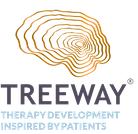
Vaccinex
Vaccinex is pioneering a differentiated approach to treating Alzheimer’s disease with pepinemab, its Semaphorin 4D (SEMA4D) blocking antibody. Prior preclinical and clinical studies have shown that SEMA4D is upregulated in neurons under the stress of neurodegenerative disease and that this triggers reactive gliosis which is an inflammatory state of astrocytes and microglia in the brain that accelerates disease progression. Pepinemab prevents gliosis and preserves the normal functions of astrocytes and microglia that play a crucial role in the health and activity of neurons. Enrollment has been completed in Vaccinex’s randomized SIGNAL-AD phase 1/2a study and topline data is anticipated in Q3 of 2024 when patients will have completed 12 months of blinded treatment and can be evaluated for improvements in brain metabolic activity and cognition.

MTI BioTech
MTI Biotech is a research-driven company dedicated to the development of credible, safe, and effective nutritional and pharmaceutical products. The overall goal of this ADDF project is to provide proof-of-concept that a dicarbonyl scavenger, 2-hydroxy-benzylamine (2-HOBA), can protect brain proteins from covalent modifications by products of oxidative stress in patients with mild Alzheimer’s Disease (AD). Oxidative stress is a major pathogenic mechanism that underlies both the pre-clinical development and subsequent progression of AD and has the potential to be targeted both preventively and therapeutically with 2-HOBA.

Metro International Biotech
MetroBiotech’s mission is to build the most comprehensive portfolio of proprietary NAD boosters in the world. The company’s clinical programs are determining the most efficacious medical applications of these therapeutics for treatment of diseases and conditions of aging.

Location
Worcester, MA, USA
Primary Research Topic
Mitochondria/Metabolic Function
Visit
metrobiotech.com
Pelagos Pharmaceuticals
Pelagos is developing novel drugs to treat diseases of aging including neurodegenerative diseases and heart failure by restoring healthy cellular metabolism and mitochondrial function.
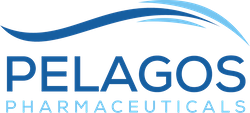
NeuroTherapia
NeuroTherapia, Inc. is a clinical stage company developing treatments for neural inflammation, initially targeting Alzheimer’s disease (AD) with an orally available small molecule, NTRX-07. The compound has completed Phase 1 single and multiple (7-days) ascending dose clinical studies with no evidence of dose limiting toxicity, at doses predicted to be efficacious.
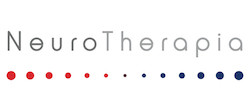
Therini Bio
Therini Bio is developing novel therapeutics based on unique insights into the novel role of fibrin in driving chronic innate immune activation that characterizes a broad set of human diseases with high unmet need.

C2N Diagnostics
C2N's Precivity™ brand of blood-based biomarker tests aid healthcare providers by identifying the presence or absence of brain amyloid pathology among individuals with cognitive impairment. C2N’s blood tests are being developed to address the entire spectrum of Alzheimer’s disease: risk stratification, early detection, disease staging, differential diagnosis, and treatment monitoring, along with other neurodegenerative disorders.
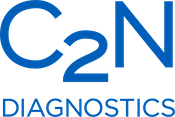
RIO Pharmaceuticals
Rio Pharmaceuticals, Inc., aims to transform the diagnosis of neurological diseases through the development of new positron emission tomography (PET) imaging clinical tracers that can detect pathological changes in the human brain and spinal tissue. The custom PET tracers are targeted to specific central nervous system (CNS) proteins associated with select neurotransmitter networks. One of Rio’s currently focused efforts is to advance the clinical PET imaging tracer RP-115 that targets the excitatory amino acid transporter 2 (EAAT2) protein that is primarily localized on astrocyte cells. EAAT2 is responsible for clearance of the critical neurotransmitter L-glutamate and signature CNS tissue EAAT2 changes are associated with neurological diseases such as Alzheimer’s diseases and related dementias (ADRD) and amyotrophic lateral sclerosis (ALS), among others.
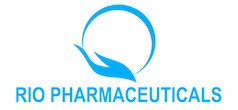
Location
San Francisco, CA, USA
Primary Research Topic
Synaptic Activity and Neurotransmitters
Visit
riopharmaceuticals.com
Precision Molecular
We focus on high-value targets for neuroinflammation, and theranostics for tumors and their microenvironment. The latter is increasingly recognized as a key factor in promoting malignancy, and reprogramming it against the tumor is among our most important objectives

MindImmune Therapeutics
MindImunne Therapeutics is investigating the role of the immune system in diseases of the central nervous system. Our lead program is a novel therapeutic antibody to prevent neuroinflammation caused by peripheral immune cells recruited into the brain in Alzheimer’s disease.

IMAGINOSTICS
Imaginostics is working to create the next generation of precision medicine diagnostic tools for clinicians and drug developers to transform personalized healthcare, accelerate drug development, and fight aging. The ongoing project employs Imaginostics' innovative QUTE-CE MRI technology to clinically validate its ability to detect vascular abnormalities in individuals, particularly focusing on Vascular contributions to cognitive impairment and dementia (VCID) and mild cognitive impairment, with the overarching goal of transforming early detection and detailed characterization of these neurodegenerative conditions.
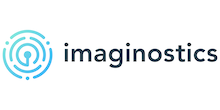
APRINOIA
APRINOIA is a clinical stage company developing novel therapeutics and PET imaging diagnostics for early diagnosis, treatment, and management of Alzheimer’s, Parkinson’s and primary tauopathies and synucleinopathies.

Admit Therapeutics
Our company is developing a test using next-generation sequencing and a machine learning approach to measure methylation changes in mitochondrial DNA that can predict the progression to Alzheimer’s disease dementia from Mild Cognitive Impairment. Employing this technology for clinical trial screening and patient enrollment has the potential to reduce timelines and costs associated with clinical trials, boosting opportunities for the identification of new and effective drugs.

Location
Begues, Catalonia, Spain
Primary Research Topic
Mitochondria/Metabolic Function
Visit
admit-therapeutics.com
Altoida
Altoida is a pioneer in developing digital biomarkers of neurological conditions using augmented reality and machine learning. Our technology platform is designed to enable an objective evaluation of an individual’s cognitive health, which may potentially allow for faster patient selection for clinical trials, as well as sensitive monitoring of disease progression and treatment response. Altoida’s mission is to enable a new era of precision neurology using digital biomarkers. Our proprietary evidence-based platform is founded on more than 20 years of scientific research and published in multiple peer-reviewed papers including Nature Digital Medicine.

Biological Dynamics
Biological Dynamics, Inc. is a company committed to improving health outcomes by detecting diseases at the earliest stages. The Company’s proprietary ExoVerita™ platform simplifies isolation of extracellular vesicles, enabling multiomic applications. Its ExoVita™ Pancreas Test operates in a College of American Pathologists (CAP) accredited, CLIA-certified clinical laboratory in San Diego

RetiSpec
RetiSpec is a Toronto-based startup at the intersection of neurotech and artificial intelligence (AI), solving early detection of neurodegenerative diseases through a simple eye exam. Its mission is to enable widespread early and accurate detection of neurodegenerative disease markers with an accessible, affordable and scalable AI-driven eye test at the point of care.

NeuroVision Imaging
NeuroVision Imaging, Inc. is a diagnostic and disease management company dedicated to providing cutting-edge solutions addressing Alzheimer’s Disease and other neurological disorders. We partner with prominent health plans, health systems, and employers enabling us to furnish members with evidence-based lifestyle coaching, diagnostic biomarkers, and state-of-the art digital healthcare offerings, aimed at enhancing their cognitive well-being and brain health.

Hummingbird Diagnostics
Hummingbird Diagnostics extracts deep insights into disease through the integrated analysis of both disease and immune system derived small RNA biomarkers from whole blood. This dual interrogation of signal from disease and the host response to disease enables a highly sensitive, robust, and AI powered platform that will revolutionize how we diagnose, treat, and manage diseases, like cancer or Alzheimer’s disease.

Location
Heidelberg, Baden-Wurttemberg, Germany
Primary Research Topic
Blood biomarker
Neurotrack Technologies
Neurotrack is a digital health company on a mission to transform the diagnosis and management of dementia and Alzheimer’s disease. The company develops clinically-validated cognitive assessments, including the first ever three-minute digital screening to detect cognitive impairment in annual wellness visits. The company also provides patient education and behavioral health support to address modifiable risk factors.

Cogstate
At Cogstate, we believe brain health is profoundly important to quality of life and should be easier to measure. As one part of this broader mission—and with generous funding from the ADDF—Cogstate is developing a science-backed, reliable, and easy-to-use memory app that anyone can use to regularly monitor brain health.

ToxGenSolutions
ToxGenSolutions aims at tools allowing for preclinical diagnostics of Alzheimer’s Disease with focus on differences between men and women. Our genetic and epi-genetic networks allowed the identification of 3 potential drug targets. Currently potential drugs are being identified using computational tools. Drug candidates are subjected to in vitro HTS for assessing toxicity (step 1) as well as for assessing efficacy (step 2) using brain spheroids composed of neurons, glia cells and astrocytes. The BBB will also be included both in toxicity and efficacy assessment.

Location
Maastricht, Limburg, Netherlands
Primary Research Topic
Epigenetics
Visit
toxgensolutions.eu
C. Light Technologies
C. Light Technologies is a venture-backed healthtech company on a mission to revolutionize healthcare with precision oculometrics that translate the eye-brain connection through their flagship device, Retitrack™. This FDA 510(k)-cleared retinal eye-tracker captures high-resolution retinal videos in 10-seconds, and their advanced analytics software generates actionable data and reports with the goal to enable early detection and earlier intervention for future clinical use in diseases like Alzheimer's, multiple sclerosis, and dementia.
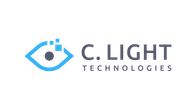
Quanterix
From discovery to diagnostics, Quanterix’s ultrasensitive biomarker detection is fueling breakthroughs only made possible through the Company’s unparalleled sensitivity and flexibility. Its industry-leading Simoa® precision instruments, digital immunoassay technology and CLIA-certified Accelerator laboratory have supported research that advances disease understanding, management and patient care in neurology, oncology, immunology, cardiology and infectious disease for nearly two decades.

Location
Billerica, MA, USA
Primary Research Topic
Combined Abeta, tau, neurodegeneration and inflammation markers
Visit
quanterix.com
Optina Diagnostics
Optina harnesses the power of its innovative retinal imaging and AI platform to provide accessible, non-invasive diagnostic test results for Alzheimer's disease and related dementias, empowering healthcare providers and millions of patients to act on timely and meaningful information for a healthy longevity.
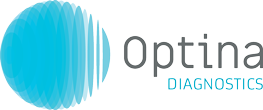
Fujirebio
Fujirebio is an R&D-driven company constantly developing new technologies and unique biomarkers with high clinical value. Our group mission is to create new value in healthcare and thereby contribute to human health and the future of medical care.
Fujirebio has been on the forefront in the fight against Alzheimer’s disease for the last 30 years. We were the first to develop a comprehensive line of Alzheimer’s products capable of running on fully automated systems. Because we recognize the scope of what is still to accomplish, we continue to invest in the development of new markers, and in particular, the research of simple-to-administer blood tests for the diagnosis of different neurodegenerative diseases. The Fujirebio Neuro Center of Excellence nurtures the partnerships and collaborations required to meet these ambitions.

Linus Health, Inc.
Linus Health is a digital health company focused on early detection of Alzheimer's and other dementias. The company combines cutting-edge neuroscience and clinical expertise to empower healthcare providers and researchers with objective, AI-enhanced digital cognitive assessment solutions that are accessible and easy to use.
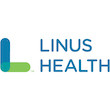
NeuroDex
NeuroDex creates blood-based diagnostics by isolating cell-specific exosomes. These cell-specific exosomes enable examination of biomarkers in and on the exosomes while providing confidence that they are brain-specific.

New York, NY 10019
info@alzdiscovery.org
212.901.8000
© Copyright 2025. The Alzheimer's Drug Discovery Foundation, a not-for-profit, section 501 (c)(3).